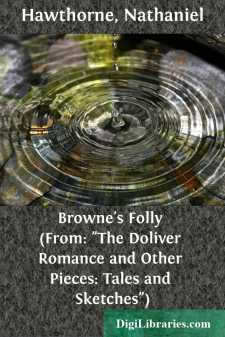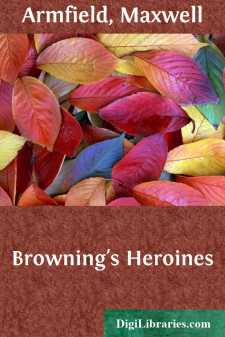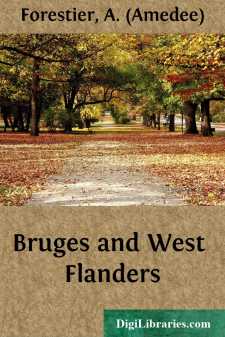Categories
- Antiques & Collectibles 13
- Architecture 36
- Art 48
- Bibles 22
- Biography & Autobiography 813
- Body, Mind & Spirit 142
- Business & Economics 28
- Children's Books 14
- Children's Fiction 11
- Computers 4
- Cooking 94
- Crafts & Hobbies 4
- Drama 346
- Education 46
- Family & Relationships 57
- Fiction 11829
- Games 19
- Gardening 17
- Health & Fitness 34
- History 1377
- House & Home 1
- Humor 147
- Juvenile Fiction 1873
- Juvenile Nonfiction 202
- Language Arts & Disciplines 88
- Law 16
- Literary Collections 686
- Literary Criticism 179
- Mathematics 13
- Medical 41
- Music 40
- Nature 179
- Non-Classifiable 1768
- Performing Arts 7
- Periodicals 1453
- Philosophy 64
- Photography 2
- Poetry 896
- Political Science 203
- Psychology 42
- Reference 154
- Religion 513
- Science 126
- Self-Help 84
- Social Science 81
- Sports & Recreation 34
- Study Aids 3
- Technology & Engineering 59
- Transportation 23
- Travel 463
- True Crime 29
Sort by:
MY DEAR COUSIN:âI should be very glad to write a story, as you request, for the benefit of the Essex Institute, or for any other purpose that might be deemed desirable by my native townspeople. But it is now many years since the epoch of the "Twice-Told Tales," and the "Mosses from an Old Manse"; and my mind seems to have lost the plan and measure of those little narratives, in...
more...
by:
Henry Jones
CHAPTER I. INTRODUCTION. "Grau, theurer Freund, ist alle Theorie, Und grün des Lebens goldner Baum." (Faust.) There is a saying of Hegel's, frequently quoted, that "a great man condemns the world to the task of explaining him." The condemnation is a double one, and it generally falls heaviest on the great man himself, who has to submit to explanation; and, probably, the last...
more...
CHAPTER I ENGLISH POETS, FRIENDS AND ENTHUSIASMS To any one casually trying to recall what England has given Robert Browning by way of direct poetical inspiration, it is more than likely that the little poem about Shelley, "Memorabilia" would at once occur: I"Ah, did you once see Shelley plain,And did he stop and speak to youAnd did you speak to him again?How strange it seems and new!...
more...
by:
Maxwell Armfield
PREFACE When this book was projected, some one asked, "What is there to say about Browning's heroines beyond what he said himself?"—and the question, though it could not stay me, did chill momentarily my primal ardour. Soon, however, the restorative answer presented itself. "If there were nothing to say about Browning's heroines beyond what he said himself, it would be a bad...
more...
INTRODUCTION LIFE OF BROWNING Robert Browning was born in Camberwell, London, May 7, 1812. He was contemporary with Tennyson, Dickens, Thackeray, Lowell, Emerson, Hawthorne, Darwin, Spencer, Huxley, Dumas, Hugo, Mendelssohn, Wagner, and a score of other men famous in art and science. Browning's good fortune began with his birth. His father, a clerk in the Bank of England, possessed ample means for...
more...
The Boy in the Garden. I always felt as if I should like to punch that boy’s head, and then directly after I used to feel as if I shouldn’t care to touch him, because he looked so dirty and ragged. It was not dirty dirt, if you know what I mean by that, but dirt that he gathered up in his work—bits of hay and straw, and dust off a shed floor; mud over his boots and on his toes, for you could see...
more...
TO MY TEN BEST FRIENDS: Who are far wiser in their way and far better in every way, than I; and yet who have not the wisdom to know it Who do not merely think I am perfect, but who are calmly and permanently convinced of my perfection;—and this in spite of fifty disillusions a day Who are frantically happy at my coming and bitterly woebegone in my absence Who never bore me and never are bored by me...
more...
CHAPTER I THE MARKET-PLACE AND BELFRY—EARLY HISTORY OF BRUGES Every visitor to 'the quaint old Flemish city' goes first to the Market-Place. On Saturday mornings the wide space beneath the mighty Belfry is full of stalls, with white canvas awnings, and heaped up with a curious assortment of goods. Clothing of every description, sabots and leathern shoes and boots, huge earthenware jars,...
more...
by:
Mayne Reid
Chapter One. The Palace Grodonoff. On the banks of the Neva, near the great city of Saint Petersburg, stands a splendid palace, known as the Palace Grodonoff. It is the property of a Russian nobleman of that name, as it is also his place of residence. Were you to drive up to the front gate of this grand palace, you would see a coat-of-arms sculptured in granite over the entrance. In this piece of...
more...
by:
Layamon
LAYAMON'S BRUT At Totnes Constantin the fair and all his host came ashore; thither came the bold man—well was he brave!—and with him two thousand knights such as no king possessed. Forth they gan march into London, and sent after knights over all the kingdom, and every brave man, that speedily he should come anon. The Britons heard that, where they dwelt in the pits; in earth and in stocks...
more...











